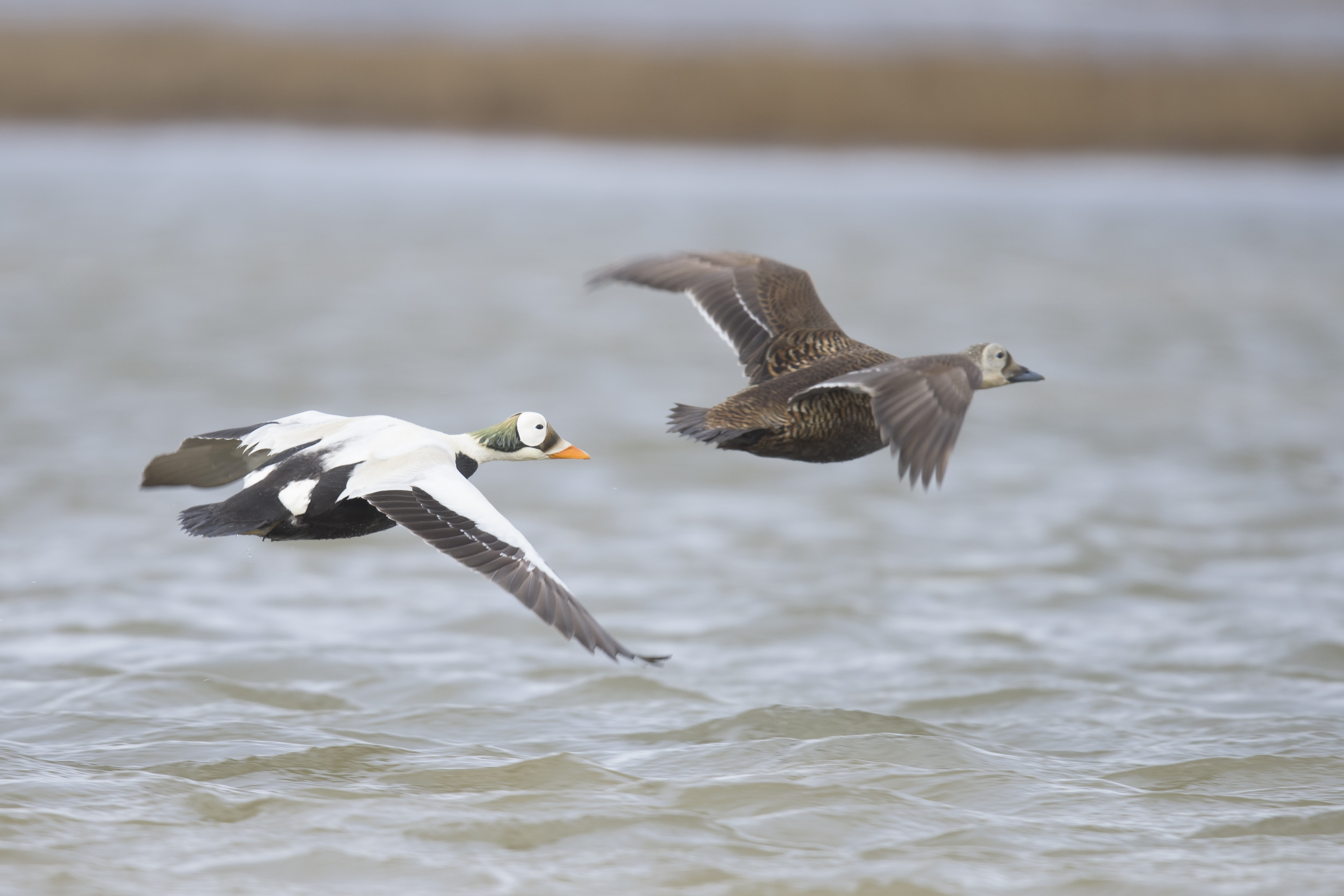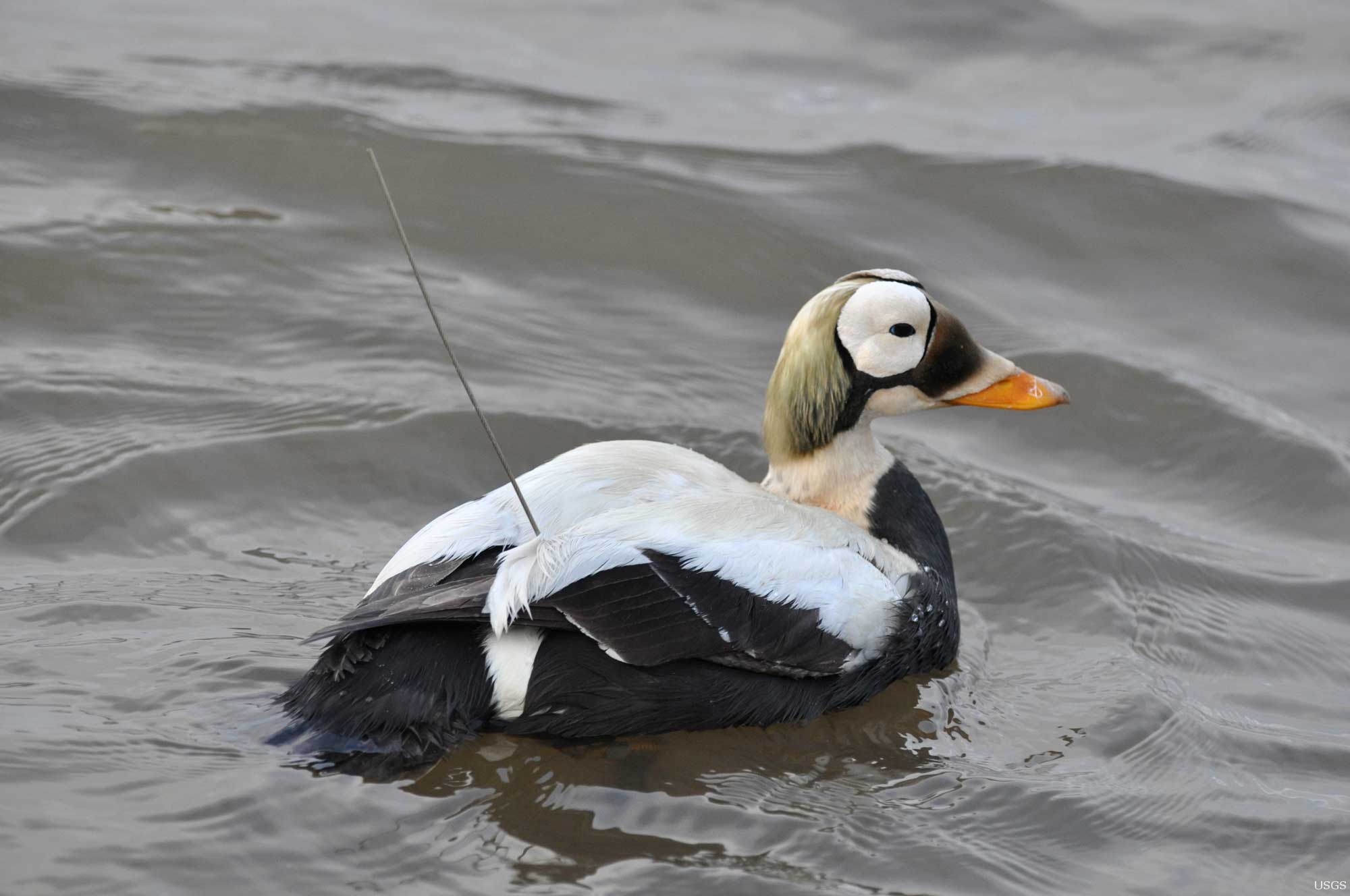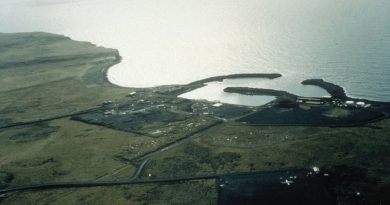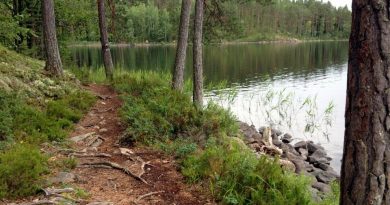New federal project to count eider population poisoned by shot in Alaska

Threatened spectacled eiders, sea ducks that have died in large numbers after ingesting lead from hunters’ spent ammunition, will be tracked and counted in a research project announced Friday by the U.S. Department of Interior.
The project was announced just days after President Donald Trump’s new Interior secretary canceled an Obama administration ban on some use of lead by sportsmen in national wildlife refuges.
The new project will use satellite transmitters and aerial surveys to try to get a better estimate of the world’s spectacled eider population, the department said in a statement. The sea duck nests in the moist tundra of western and northern Alaska and neighboring parts of Russia.
The spectacled eider count is one of nine projects in 12 national wildlife refuges that are supported with a total of $3.74 million in funding from the U.S. Fish and Wildlife Service’s Cooperative Recovery Initiative. The projects are focused on at-risk species in or near national wildlife refuges, according to Interior.
“We are targeting our work where it will do the most good for America’s resources,” Fish and Wildlife Service Acting Director Jim Kurth said in the statement. “This initiative is a unique way to engage in conservation work with states and partners, giving the taxpayer a good return on investment.”
Home to the species world population

The Yukon Delta National Wildlife Refuge holds important habitat for spectacled eiders and will be the location of much of the work. The results will help managers write a species status assessment expected to start in 2019, said Andrea Medeiros, spokeswoman for the Fish and Wildlife Service in Alaska.
The project will also track spectacled eiders in their marine habitat. In winter, the world’s entire spectacled eider population congregates in the Bering Sea, using open-water gaps in ice between Alaska’s St. Matthew and St. Lawrence islands.
It is expected to add to other spectacled eider research by the Fish and Wildlife Service, U.S. Geological Survey and other agencies and organizations.
Threatened and declining eiders
After a dramatic decline, with losses of up to 98 percent documented in some breeding areas, spectacled eiders were listed as threatened in 1993. The exact cause of the decline was not conclusively identified but the ducks suffered heavy losses in the past from lead acquired from spent shot.
Lead shot for hunting waterfowl was banned in 1991, though new Interior Secretary Ryan Zinke rescinded an Obama administration rule banning wider use of lead ammunition in national wildlife refuges.
Lingering lead pollution is a threat that spectacled eiders still face, according to the Alaska Department of Fish and Game. Other threats are believed to be predation and climate change-induced loss of food sources, and the ducks’ congregation in the Bering Sea makes them vulnerable to shipping accidents and spill catastrophes, according to the department.
The Fish and Wildlife Service’s Cooperative Recovery Institute was established in 2013.
Related stories from around the North:
Canada: Switzerland joins growing list of countries having banned seal product imports, Radio Canada International
Finland: Wolves shot amid “exceptional number” of backyard sightings in Western Finland, Yle News
Norway: Finnmark introduces strict regulations on grouse hunting, The Independent Barents Observer
Russia: Rare birds around Russian Arctic oil field not a problem, company financed study says, The Independent Barents Observer
Sweden: More wolves can be culled after Supreme Court decision, Radio Sweden
United States: Alaska is trying to slice some land out of the Arctic National Wildlife Refuge, Alaska Dispatch News



